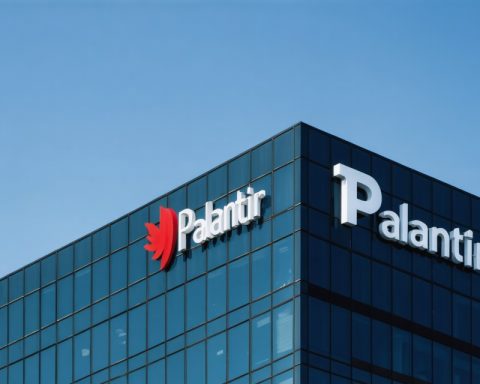A Potential Listing that Sparks Debate
The fast-fashion powerhouse, Shein, is eyeing a public listing in the UK by mid-year, contingent upon securing regulatory approvals. Reports indicate that the unveiling of its initial public offering (IPO) could take place as soon as Easter if the necessary green light is granted.
However, this planned advancement has drawn scrutiny. Liam Byrne, chair of the cross-party business and trade committee, has expressed serious concerns regarding the ethics behind Shein’s operations. In a recent letter to the heads of both the London Stock Exchange (LSE) and the Financial Conduct Authority (FCA), he highlighted troubling unanswered questions about Shein’s supply chain integrity.
Shein, founded in China, has faced ongoing criticism for its labor practices. Investigations, including one from the BBC, revealed alarming conditions in labor hotspots such as a neighborhood dubbed “Shein village” in Guangzhou, where factory employees reportedly work up to 75 hours weekly. Despite these revelations, Shein has yet to respond directly to media inquiries regarding its labor policies.
Joining the market comes at a challenging time for the UK, seeking to revitalize its IPO landscape as businesses consider more approachable venues like the US. A recent poll reflects public sentiment, revealing that only 34% of respondents support Shein’s potential listing, while a significant 56% oppose it, and 10% remain undecided.
The Broader Implications of Shein’s Potential IPO
Shein’s potential IPO in the UK not only stirs domestic controversy but also reflects broader societal and economic trends that demand attention. The rise of fast fashion has fundamentally altered consumer behavior, encouraging a culture of disposable clothing that prioritizes instant gratification over sustainable practices. By considering a public listing, Shein may inadvertently further entrench this disposability ethos, which has already led to significant waste and ethical concerns in the fashion industry.
Culturally, this situation underscores a growing awareness of ethical consumption. As consumers become more informed about the implications of their purchasing choices, backlash against companies like Shein may intensify. The disparity between consumer expectations for sustainability and the realities of fast fashion could lead to a more pronounced demand for transparency and accountability from brands.
From an economic standpoint, Shein’s IPO could have ripple effects on the global market, particularly as the company seeks to recover from the COVID-19 pandemic’s impact on retail. The UK’s nimbleness in adapting to new business models will be tested; if successful, it might encourage other fast-fashion entities to pursue similar avenues, potentially flooding the market with low-cost, ethically dubious products.
Environmental consequences remain a significant concern, as the fast-fashion industry is among the largest contributors to global pollution. Should Shein thrive post-IPO, it could exacerbate these issues unless serious reforms are implemented.
Ultimately, the outcome of this listing could symbolize not only the resilience of the fast-fashion model but also the ongoing struggle between economic ambitions and ethical responsibilities within today’s global landscape.
Shein’s IPO: A Closer Look at the Controversies and Market Implications
Overview of Shein’s Upcoming IPO
Shein, the fast-fashion titan known for its rapid production and low prices, is planning a public listing in the UK, potentially as early as Easter of this year, pending regulatory approvals from the London Stock Exchange (LSE) and the Financial Conduct Authority (FCA). This move comes amid a broader push to rejuvenate the UK’s IPO scene, which has seen decreased activity in favor of US markets.
Concerns Surrounding Shein’s Business Practices
The anticipated IPO has sparked significant debate regarding Shein’s operations. Liam Byrne, chair of the cross-party business and trade committee, has raised alarms about the ethical implications of Shein’s supply chain. In a formal letter addressed to the LSE and FCA, Byrne emphasized the need for transparency and accountability due to ongoing criticisms concerning labor conditions in Shein’s production facilities.
Investigations, particularly from reputable sources like the BBC, have uncovered troubling labor practices, including reports of long working hours—up to 75 hours per week—in certain factories in Southern China, notably within what has been referred to as “Shein village.”
Market Sentiment and Public Opinion
Shein’s upcoming IPO is met with mixed feelings among the public. A recent survey shows that only 34% of respondents support the listing, while 56% oppose it and 10% are undecided. Such sentiments reflect a growing awareness of ethical consumerism, where potential investors and customers are increasingly concerned about the sustainability and ethical dimensions of their purchases.
Pros and Cons of Shein’s IPO
Pros:
– Expansion Opportunities: Capital raised from the IPO can facilitate Shein’s growth and innovation, diversifying its product offerings and expanding into new markets.
– Increased Transparency: Going public might pressure Shein to improve its corporate governance and labor practices to attract socially conscious investors.
Cons:
– Ethical Concerns: Ongoing criticisms regarding labor practices could detract from investor confidence, impacting share performance post-IPO.
– Consumer Backlash: With rising public awareness of ethical fashion, Shein may face significant challenges in maintaining its market position if it cannot address these concerns effectively.
Future Trends and Predictions
As Shein prepares for its IPO, industry experts predict a potential shift in consumer behavior towards more ethically-oriented brands. This could lead to increased pressure on fast-fashion companies to adopt sustainable practices. Furthermore, given the current market climate, Shein’s success may hinge on its ability to address and ameliorate the ethical issues surrounding its operations before and after becoming a publicly traded company.
Conclusion
The upcoming listing of Shein on the UK stock exchange raises critical questions about ethics in the fast-fashion industry. With significant public scrutiny and a growing emphasis on sustainable practices, how Shein responds to these challenges will likely shape its future trajectory and influence the broader market landscape.
For more insights into the fast-fashion industry and Shein’s role, visit Shein.









